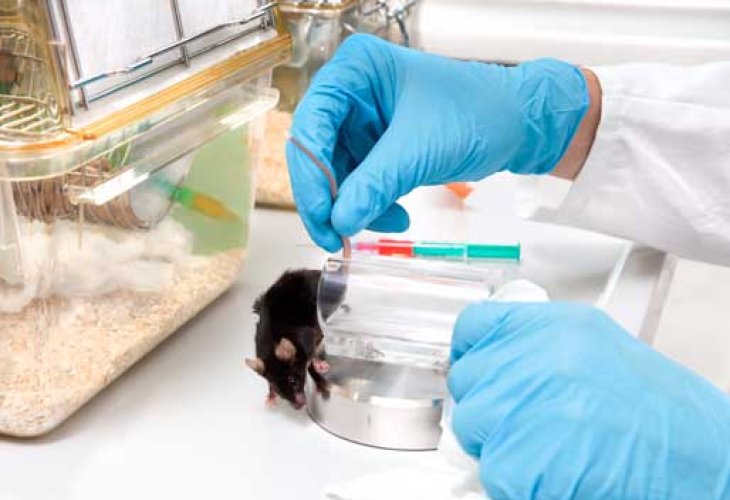Jewish Law
Animal Testing in Jewish Law: Is Medical Experimentation on Animals Permitted?
Why saving human life can override animal suffering, and the ethical limits set by leading rabbis for humane and necessary medical research
- Rabbi Shai Amar
- |Updated

Much of modern medical knowledge has developed — directly or indirectly, through research involving experiments on animals. To evaluate whether this is permissible according to Jewish law, we must look to the words of our Sages.
The Torah states (Shemot 23:5): “If you see the donkey of your enemy lying under its burden… you must surely help him with it.” From this, the Talmud (Shabbat 128b) derives the prohibition of tza’ar ba’alei chayim — causing unnecessary suffering to animals. Maimonides codifies this as Torah law (Hilchot Rotzeach 13:13).
However, the Rema (Even HaEzer 5) rules that when there is a genuine human need, the prohibition does not apply. The law of tza’ar ba’alei chayim pertains to inflicting pain while keeping the animal alive — not to killing it.
When Animal Experimentation Is Permitted
The Imrei Shefer permits animal testing only in cases of necessity — such as medical research vital to human health. He clarifies that the Rema’s words do not allow experimentation for financial profit or curiosity.
The Shvut Yaakov (vol. 3) was asked by a physician whether it is permissible to give poisonous substances to animals to study their effects on humans. He ruled leniently, explaining that since the animal feels no ongoing pain (as in plucking feathers), and the purpose is healing, it is allowed.
Similarly, Rabbi Yaakov Breisch in Chelkat Yaakov wrote that one may cause animal suffering for scientific or medical purposes — but from a perspective of piety, it is better to avoid unnecessary cruelty. The Seridei Eish, however, disagreed with this last point, arguing that piety (middat chassidut) applies only to personal matters. Since medical research benefits others, it is not merely permitted but obligatory when it can lead to healing and saving lives.
This view is also supported by major authorities such as the Chatam Sofer, Binyan Tzion, Terumat HaDeshen, and others.
Ethical Guidelines
This conclusion is further reinforced by Professor A.S. Abraham in the Assia Journal (Vol. 5, p. 18), summarizing that:
Animal experimentation is permitted when it serves genuine medical or scientific purposes.
Anesthesia should be used whenever possible to minimize pain (Tzitz Eliezer 14).
After experiments, if the animal is suffering, it should be euthanized humanely and swiftly (Assia Vol. 5).
The leniency applies only to qualified medical professionals conducting research for therapeutic purposes — not to private individuals or “amateur scientists.”
Rabbi Shai Amar, Halachic Department, Hidabroot

